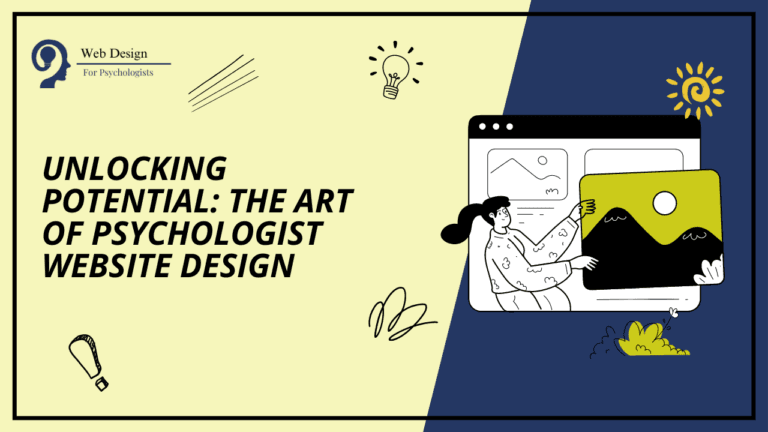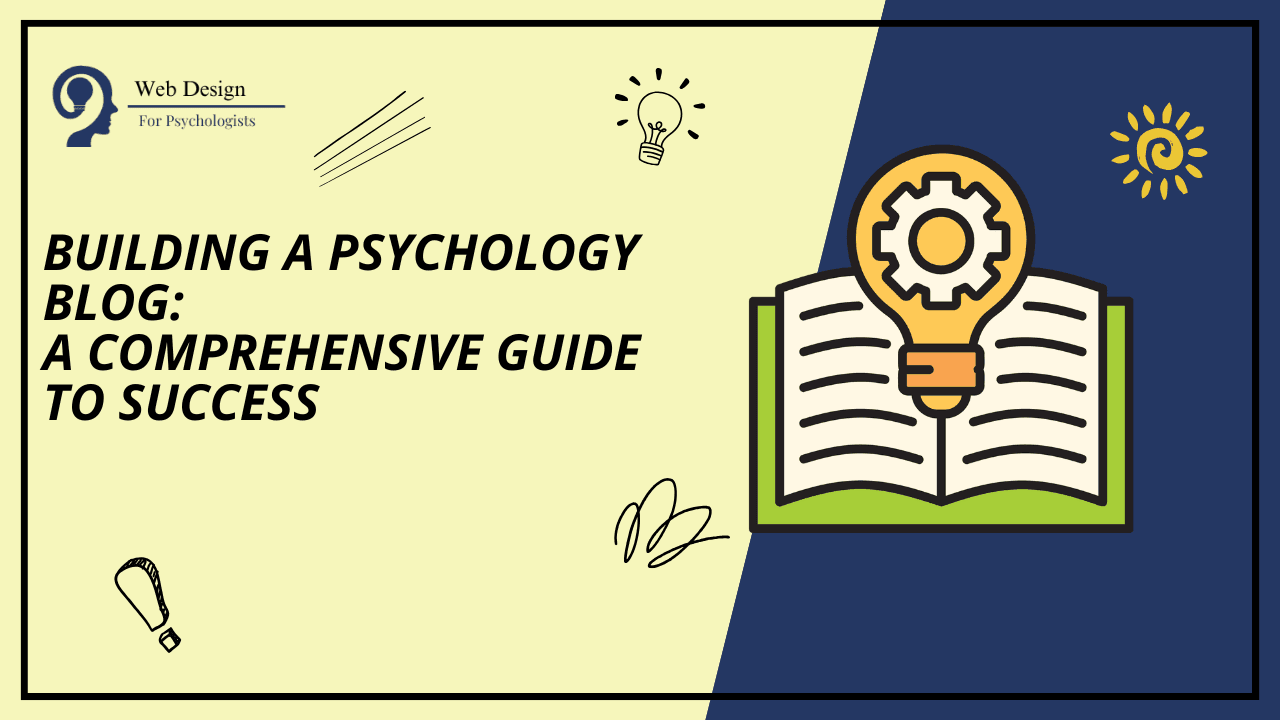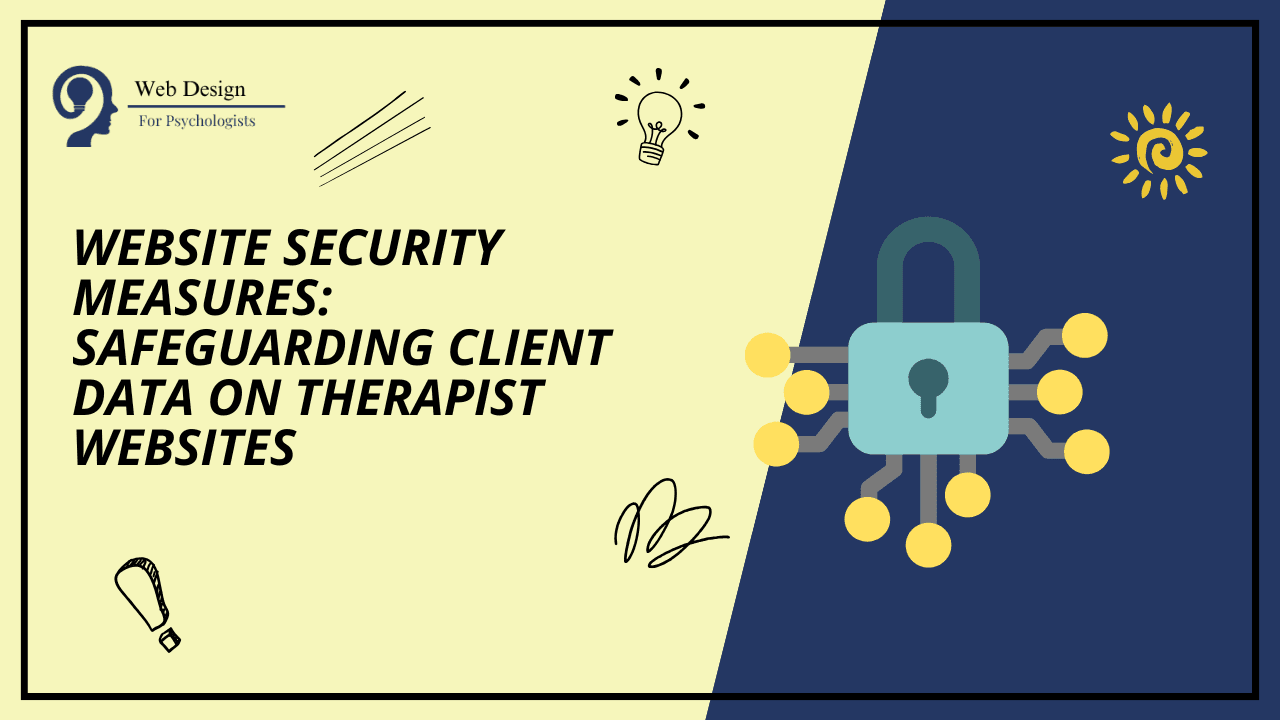In the rapidly evolving digital landscape, psychologist website design stands as a crucial element in establishing a strong online presence. As more individuals turn to the internet to seek psychological services, having a well-designed website is no longer a luxury but a necessity for psychologists. This comprehensive guide delves into the essence of psychologist website design, highlighting the importance of psychologist website templates, custom designs, and responsive layouts.

The Power of First Impressions: Why Website Design Matters for Psychologists
The design of a psychologist’s website is often the first point of interaction with potential clients. It’s where first impressions are formed, and in many cases, it can significantly influence a client’s decision to seek services. A well-designed website not only reflects professionalism but also conveys a sense of trust and credibility—essential factors in the psychology field.
Psychologist Website Templates: A Starting Point
For many psychologists, the journey to an ideal website begins with selecting the right template. Psychologist website templates offer a foundation upon which a functional, aesthetically pleasing site can be built. These templates are specifically tailored to the needs of mental health professionals, encompassing features such as:
- Clear Navigation: Ensuring clients can easily find information about services, qualifications, and how to make appointments.
- Calm Color Schemes: Utilizing colors that evoke tranquility and trust, vital in creating a welcoming atmosphere.
- Integrated Blog Sections: Allowing for the sharing of insightful articles and resources, which can aid in establishing authority and expertise in the field.
However, while templates provide a solid starting point, customization is key in distinguishing your online presence.
Custom Psychologist Website Design: Standing Out in the Crowd
Custom psychologist website design takes your online presence a step further. It involves tailoring every aspect of your website to resonate with your brand and your client’s needs. Custom design can include:

- Unique Branding Elements: Incorporating logos, specific color palettes, and fonts that align with your professional brand.
- Personalized Content: Crafting content that speaks directly to your target audience, reflecting your approach and philosophy in psychology.
- Interactive Features: Such as online appointment scheduling, contact forms, and possibly live chat options for immediate inquiries.
A custom design ensures that your website not only looks distinctive but also functions seamlessly in meeting both your needs and those of your clients.
Responsive Psychologist Websites: Accessibility Across Devices
In a world where people access the internet from a variety of devices, having a responsive psychologist website is non-negotiable. A responsive website automatically adjusts its layout, content, and functionalities to offer an optimal viewing experience across different devices, be it a desktop, tablet, or smartphone. This adaptability is vital for several reasons:
- Increased Accessibility: Clients can access your website anytime, anywhere, with ease, making your services more reachable.
- Improved User Experience: A responsive design ensures that your website is easy to navigate and use, irrespective of the device.
- SEO Advantages: Search engines, like Google, favor responsive websites, which can help improve your site’s ranking in search results.
Investing in a responsive design means investing in a broader and more satisfied client base.
Integrating Essential Elements in Psychologist Website Design
While templates, customization, and responsiveness form the core of website design, several other elements are instrumental in crafting an effective psychologist website:
- Engaging Content: Content that educates, informs, and connects with visitors, establishing your authority and expertise in psychology.
- Strong Call-to-Action (CTA): Clear CTAs guide visitors towards taking the desired action, be it scheduling an appointment or signing up for a newsletter.
- SEO Optimization: Implementing SEO best practices to enhance visibility in search engine results, making it easier for potential clients to find your services.
- Privacy and Security: Ensuring client information is protected, especially considering the sensitive nature of psychological services.
- Testimonials and Reviews: Displaying client feedback to build trust and credibility.
Conclusion: Crafting a Digital Space That Resonates
Psychologist website design is not just about aesthetics; it’s about creating a digital space that resonates with your clients and reflects your professional ethos. Whether it’s through utilizing adaptable templates, embracing custom designs, or ensuring responsiveness, the goal remains the same: to develop an online presence that is both functional and engaging.
In the journey of creating your psychologist website, remember, your website is more than just a digital business card. It’s a reflection of your commitment to providing accessible, professional, and trustworthy psychological services. By focusing on these key aspects of website design, you are not just building a website; you are building a bridge – connecting your expertise to those who need it most.




